Why Is Nutrient Bioavailability And Bioactivity Important?
The body’s physiology is intricate and complex; just because we eat healthy food and take food supplements, this does not mean that we necessarily absorb and utilise the very nutrients we set out to boost and gain health advantages from.
Orally absorbed nutrients have to undergo the tricky process of absorption, with many factors impacting a nutrient’s ability to be absorbed across the intestinal barrier and into the blood stream to their target site in different tissues. Nutrient bioavailability broadly refers to the portion of a nutrient that is absorbed and used for normal body functions.[1]
Most nutrients in foods are bound in a matrix to protect and maximise their absorption journey. Many nutrients found in food and also certain forms of nutrients used in food supplements are also in inactive forms and have to undergo a series of enzyme conversions before they are in a bioactive form that the body can utlitise.
That’s quite a number of steps that might not work efficiently or even work at all (such as from genetic mutations in specific enzymes – more on this later). This means that even with the best intentions, we might not be getting the best from the food that we eat and food supplements that we diligently take.
So what nutrient forms should we be looking for? It’s vital to remember the following:
Understanding the bioavailability and bioactivity of nutrients in food supplements is key because the efficiency with which your system absorbs key nutrients, and biologically converts any inactive forms, affects both the speed and level of positive health effects, as well impacting on the cost of your supplement programme.
There are many factors, both dietary and physiological, that influence nutrient bioavailability [2],[3]
Diet-related:
- Food structure, e.g. high levels of fibre can be difficult to digest inhibiting absorption of certain nutrients.
- Form of nutrient.
- Enhancers of absorption, e.g. meals containing fat to enhance absorption of fat-soluble vitamins like Vitamin A, D, E and K.
- Inhibitors of absorption, e.g. phytic acid, tannins and oxalic acid all found in plant materials, which inhibit micromineral absorption like zinc.
- Competition for nutrient absorption sites in the intestinal tract.
Physiological factors:
- Gastric acid levels – reduced levels occur due to antacid and Proton Pump Inhibitor (PPI) medications, stress, poor diet, nutrient deficiencies, illness and ageing.
- Digestive enzyme levels – often reduced at times of stress and poor health, as well as ageing.
- Gut motility.
- Body status of nutrient stores.
- Infection and stress.
- Gut microbiota – beneficial gut microbiota enhance absorption of minerals.
- Genetic polymorphism and inborn errors of metabolism.
We have a certain amount of control over many of these factors, such as adjusting any levels of gastric acid and digestive enzymes through supplements, the simple process of taking more time to chew food and eat a meal to help with the body’s natural digestive processes and managing our stress response in our everyday lives. We can also influence gut microbiota through what we eat, our lifestyles and by taking a good quality probiotic supplement if required.[4]
We don’t, however, have control over the food structure and also nutrient levels in foods, especially with today’s modern farming methods reducing the soil content of many vital nutrients.[5] This is where we may reach for food supplements to support dietary intake. We may also be using food supplement more directionally to support specific areas of body nutrient status or even if we have a known genetic mutation that prevents us from gaining benefits from certain nutrients in the diet.
It’s at this point that bioactivity and bioavailability of nutrients is key and a topic that we are passionate about at Nutrigold. Our technical team has been working hard over the last few months analysing the latest research and addressing how we can improve our formulations to ensure only the most bioactive and bioavailable forms are used. You can read about the start of this journey in “Our Story”.
So what’s new and improved in Nutrigold formulations?
We are proud to announce that we have updated several nutrients in our supplement range because the research demonstrates their superior bioavailability and bioactivity. Dr Elisabeth Philipps, Nutrigold’s Technical Consultant will now take over to explain more…

Dr Elisabeth Philipps PhD BSc (Hons) BSc Nutr Med
Vitamin B6
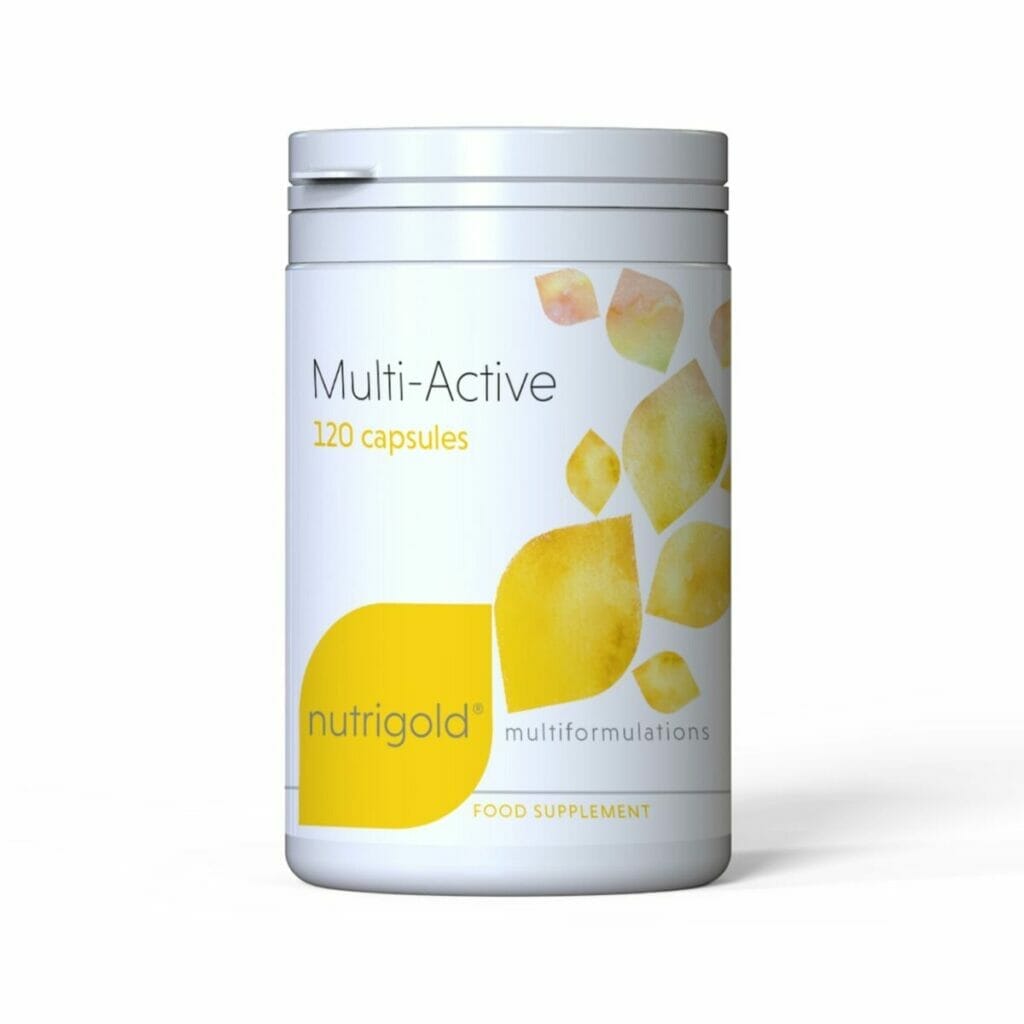
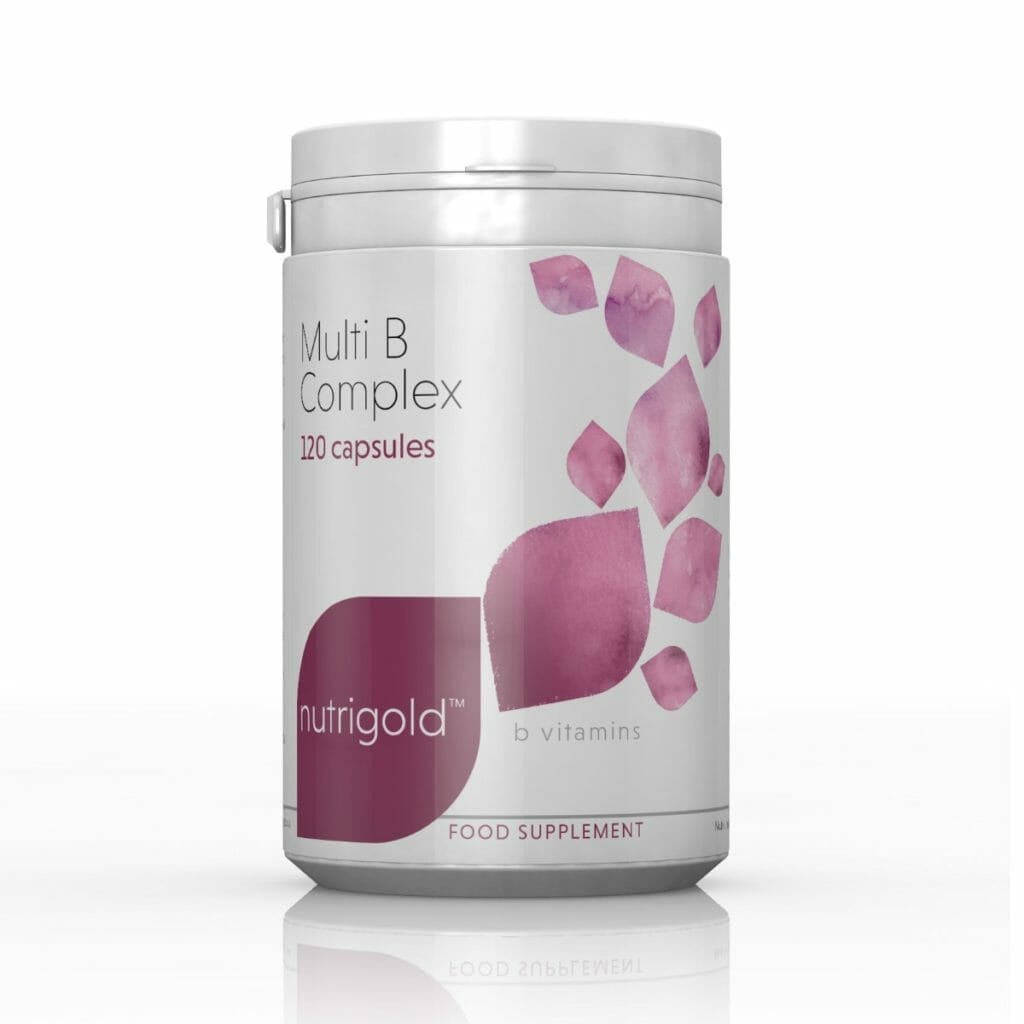
Many vitamins are present as inactive forms in food supplements. Partly because it’s assumed that the body will effectively convert them and also potentially down to cost.
Vitamin B6 is one such vitamin that is commonly supplemented as pyridoxine hydrochloride (HCl). This is one of the inactive forms of Vitamin B6 that, once ingested, is required to undergo a series of enzymatic conversions to become the active coenzyme form Pyridoxal 5-Phosphate (P5P). This bioactive form then drives many different vital processes in our body, including contributing to:
- Reduction of tiredness and fatigue.
- Normal product of energy (ATP).
- Normal functioning of the nervous system.
- Normal protein and glycogen metabolism.
- Normal red blood cell formation.
- Maintenance of normal homocysteine.
- Metabolism and regulation of hormonal activity.
It’s not just bioactivity of Vitamin B6 that is affected by form but also its bioavailability; one study found that plasma levels of P5P were increased by nearly 60% after administration compared to supplementing with pyridoxine HCl.[6] It therefore makes sense to supplement with the P5P bio-optimised form of Vitamin B6 so the vitamin is absorbed and the body does not need to expend precious energy on the conversion process.
For these reasons you will find now find Nutrigold products, including Multi B Complex and British Multi vitamin and mineral formulation, contain the P5P form of Vitamin B6 instead of pyridoxine HCl.
Folate
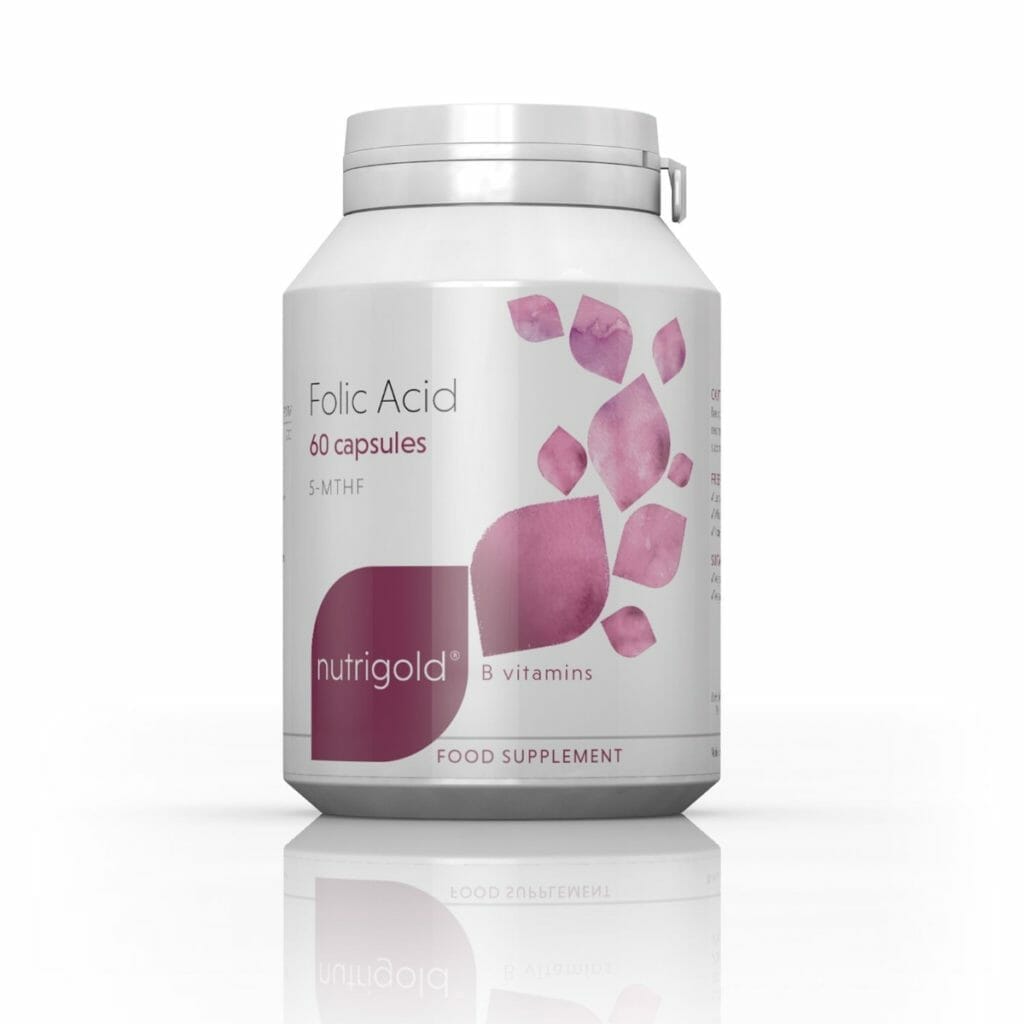
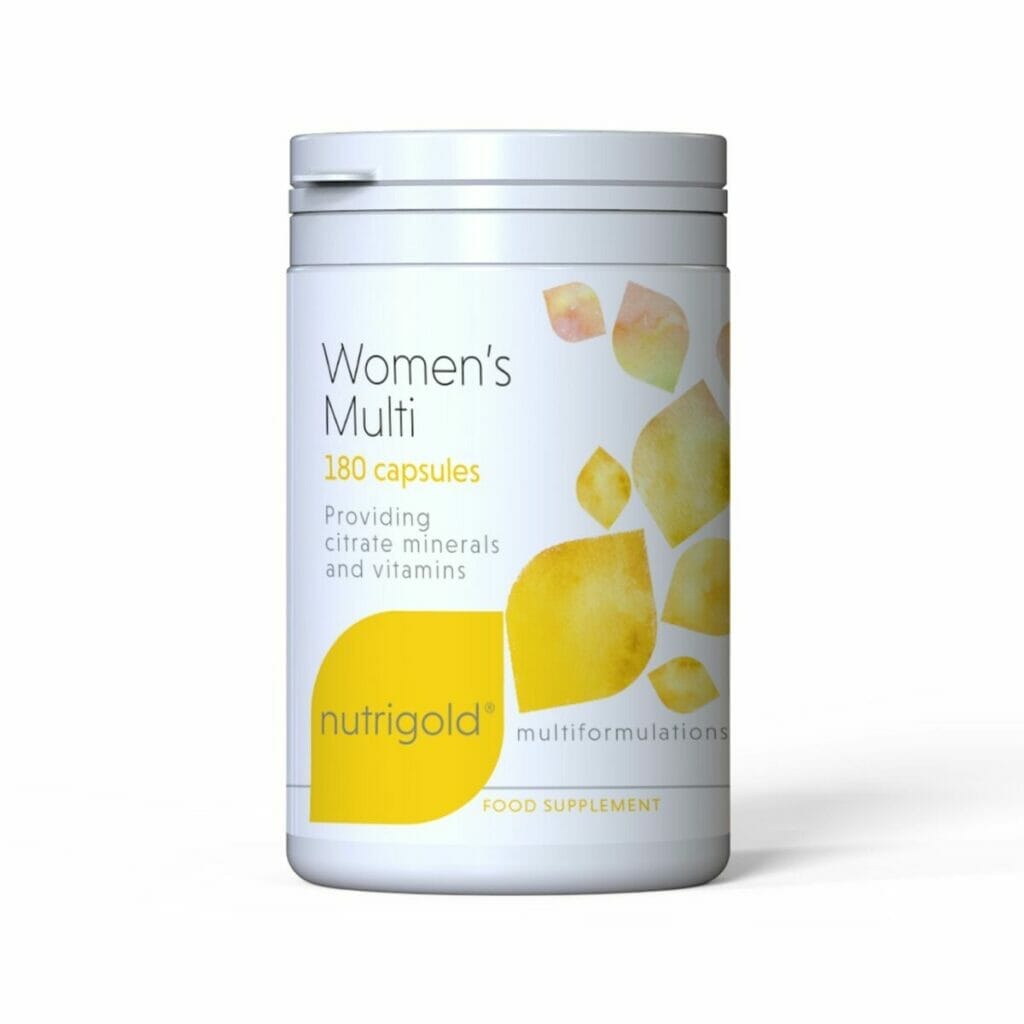
Humans cannot synthesise folate and because of its water-soluble nature, the body stores folate to a limited extent. This means folate represents a dietary requirement and must be consumed to sustain levels required for health.
So why do we need folate? This essential nutrient is especially important in pregnancy as it contributes to maternal tissue growth and has a role in the process of cell division. Low maternal folate status is a risk factor in the development of neural tube defects in the developing foetus. In fact, the NHS now recommends that you should take 400µg folic acid daily if you are considering pregnancy and until 12 weeks of pregnancy to increase maternal folate status.[7]
Folates are normally found in a wide variety of foods and are commonly consumed through a diet of green leafy vegetables; sprouts, fruits, brewer’s yeast, and animal products such as milk and dairy products, egg yolk and liver.
Unfortunately folates contained in foods are unstable and susceptible to oxidation; they rapidly lose activity during food processing, manufacturing and storage and have a bioavailability range of 25-50%, depending on the kind of food. Fresh leafy vegetables stored at room temperature may lose up to 70% of their folate activity within three days and cooking in water can increase the loss by up to 95%.
This means we may turn to food supplements to boost our folate levels, but many formulations on the market use the inactive form folic acid, for similar reasons to the use of inactive pyridoxine HCl Vitamin B6 form.
Whether we ingest food derived folates or the folic acid form found in many food supplements, they are metabolised to the bioactive form of 5-methyltetrahydrofolate (5-MTHF) through a multi-step process involving enzyme methylenetetrahydrofolate reductase (MTHFR).
In the recent years, increasing evidence of the advantages of reduced folate (i.e. 5-MHTF) versus folic acid in food supplements have been identified. Some individuals, due to their unique genetic patterns and expression, have polymorphic forms of this enzyme and do not produce adequate or effective MTHFR thus cannot convert folic acid from the diet and supplements into bioactive 5-MHTF.[8],[9],[10].
In fact, the folate conversion enzyme MTHFR is one of the most important enzymes in human physiology. Deficiencies in production or function of this enzyme have been associated with increased risk of different diseases and is very common in the population.
It’s for this reason that Nutrigold products including Folic Acid and Calcium Magnesium Complex, now contain the reduced (and methylated) 5-MTHF Quatrefolic® form instead of folic acid. Not only is this a highly bioactive form of folate but also the other advantage is that Quatrefolic® passes the gastric barrier and is absorbed mainly in the small intestine by a carrier mediated mechanism. The carrier is not saturated and this enables Quatrefolic® to ensure a higher folate uptake so you get the double positive whammy of enhanced bioactivity and bioavailability.
Vitamin K
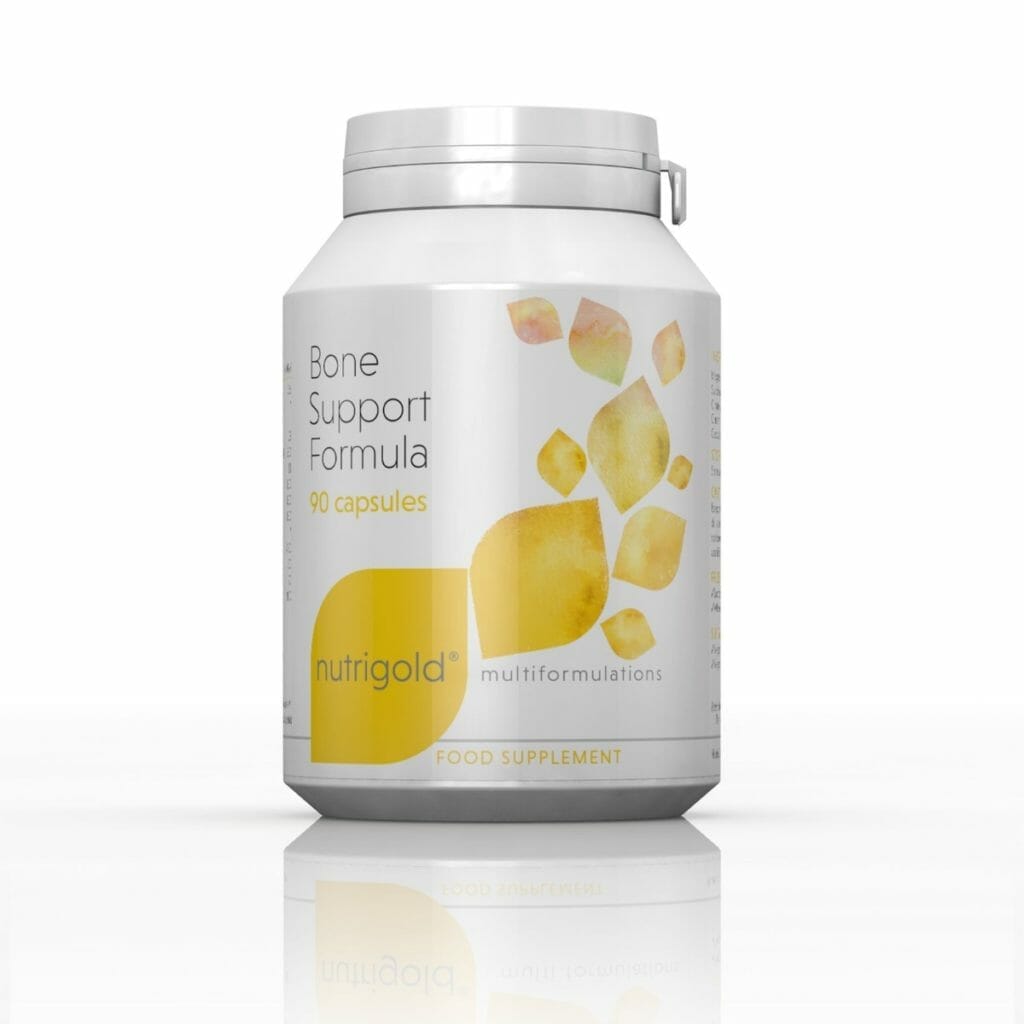
Vitamin K is a group of fat soluble vitamins that, like some B vitamin groups, share similar chemical structures that have profound differences in terms of bioavailability and bioactivity and therefore impact on health.
Vitamin K1, also called phylloquinone, is mostly found in plant foods like leafy green vegetables. It makes up about 75–90% of all Vitamin K consumed by humans. Vitamin K2 (also called menaquinone) is found in fermented foods like natto and animal products like pork and chicken, and is also produced by gut bacteria. There are several menaquinone (MK) subtypes that are named by the length of their side chain. They range from MK-4 to MK-13.
Vitamin K is well known for its roles contributing to:
- Normal blood clotting.
- Maintenance of normal skin, bones, red blood cells and vision.
- Reduction of tiredness and fatigue.
- Protection of cells from oxidative stress.
In general, the body poorly absorbs Vitamin K1. One study estimated that less than 10% of the K1 found in plants is actually absorbed. Research suggests that because K2 is often found in foods that contain fat, it may be better absorbed than K1. This is because Vitamin K is a fat-soluble vitamin, which is better absorbed when eaten with dietary fat. Additionally, Vitamin K2’s long side chain allows it to circulate in the blood longer than K1. Where Vitamin K1 may stay in the blood for several hours, some forms of K2 can remain in the blood for days. Some researchers believe that the longer circulation time of Vitamin K2 allows it to be better used in tissues located throughout the body.
The superior bioavailability of Vitamin K2 is one of the reasons we have updated our formulations, including Bone Support Formula, to contain Vitamin K2 instead of K1.
But the Vitamin K story doesn’t stop there! There are different MK forms of Vitamin K2 and this makes a further difference to bioavailability and bioactivity. Nutrigold products use MenaQ7? form of Vitamin K2, which is the only clinically validated and patented form of Vitamin K2 as MK-7 on the market today. This is a highly pure and concentrated form of Vitamin K2 with the same “trans” structure (i.e. configuration) as the natural form of Vitamin K2. Being natural-identical improves bioavailability, half-life and bioactivity, as well as safety. Studies show that MK-7 form of Vitamin K2 has greater bioavailability due to longer chain structure improving fat solubility therefore lower doses are needed to achieve clinical effects compared to MK-4. [13]
Vitamin B12
Vitamin B12, also known as cobalamin, has several important health benefits including contributions towards:
- Reduction in tiredness and fatigue.
- Normal homocysteine metabolism.
- Normal functioning of the nervous system and psychological function.
- Normal red blood cell formation.
Vitamin B12 is naturally found in fish, dairy produce, organ meats, beef, and pork. This means that vegetarians and vegans often choose it as a regular supplement.
Vitamin B12 in food supplements are typically derived from cyanocobalamin or methylcobalamin. Both are nearly identical in terms of structure but while methylcobalamin contains a methyl group, cyanocobalamin contains a cyanide molecule and is a synthetic form not found in nature.
Cyanocobalamin is the inactive form of Vitamin B12 and is converted into the two active forms of cobalamin, methylcobalamin or adenosylcobalamin. It is generally used because it’s considered more stable and cost-effective than other forms. However, whilst the differing forms don’t affect bioavailability, methylcobalamin is the natural form so is bioactive and supports raising levels of Vitamin B12 in the body as nature intended. This form is also stable in food supplements and may be retained better within the body, as one study showed that three times as much cyanocobalamin was excreted as compared to methylcobalamin.
Nutri-Golden Oldies
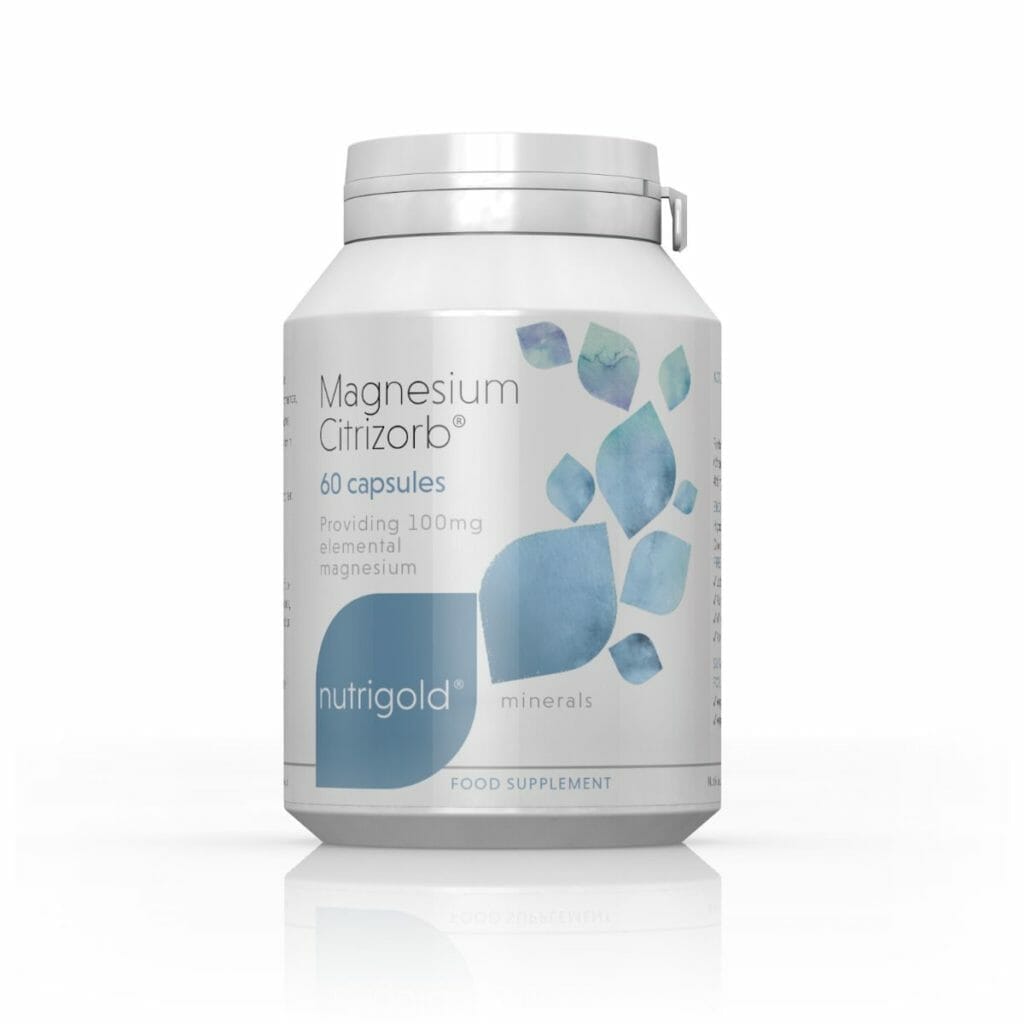
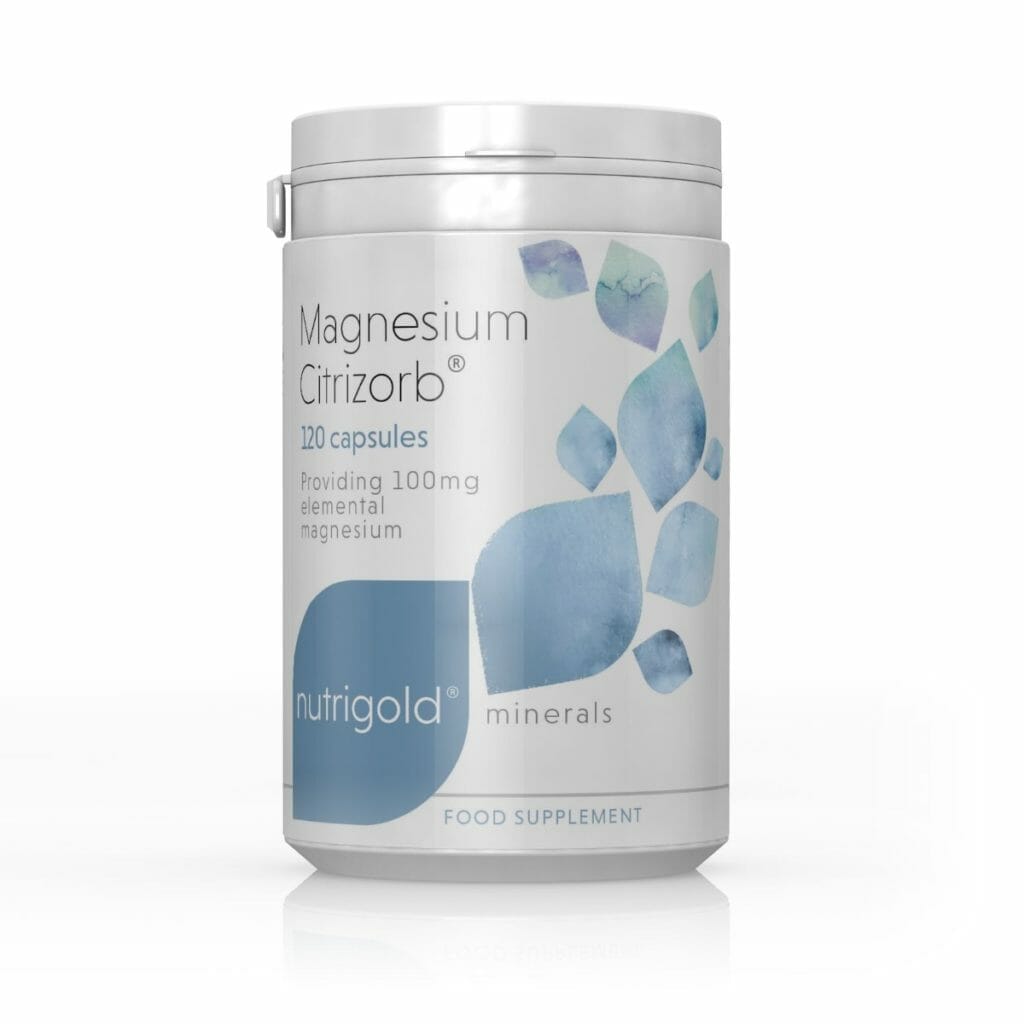
We of course still like to shout about all our other great formulations that contain bioavailable forms of nutrients! Citrizorb? organic citrate minerals are used in all our formulations. We have been championing this range for many years since now since taking the pioneering step of using organic citrates in our very first formulae designed almost 20 years ago!
And why do we love citrate minerals so much?
Citrate minerals have superior bioavailability
Minerals in food supplements need to be bound to a carrier (or ligand) to make sure they are in a stable state to be absorbed and also effective at the required site(s) of action around the body. The form the carrier takes is especially important, as this can affect the mineral’s bioavailability, as well as impact its bioactivity on the body’s cells, tissues and systems. Organic carriers, so called because they are also found naturally in the body tissues and fluids, including citrates and gluconates, increase absorption and bioavailability of food supplement minerals compared to inorganic carriers, such as carbonates and oxides.[16],[17]
They also do not have the side effects of neutralising gastric acid and increased gut motility (i.e. diarrhoea) associated with oxide and carbonate forms of minerals. A much better option when after all, you’re most likely to be taking food supplements to support optimum health and not to experience negative gastric side effects!
Using organic mineral citrates ensures high bioavailability, such as Magnesium Citrizorb?, and all of our other products containing Citrizorb? minerals.
CoEnzymeQ10
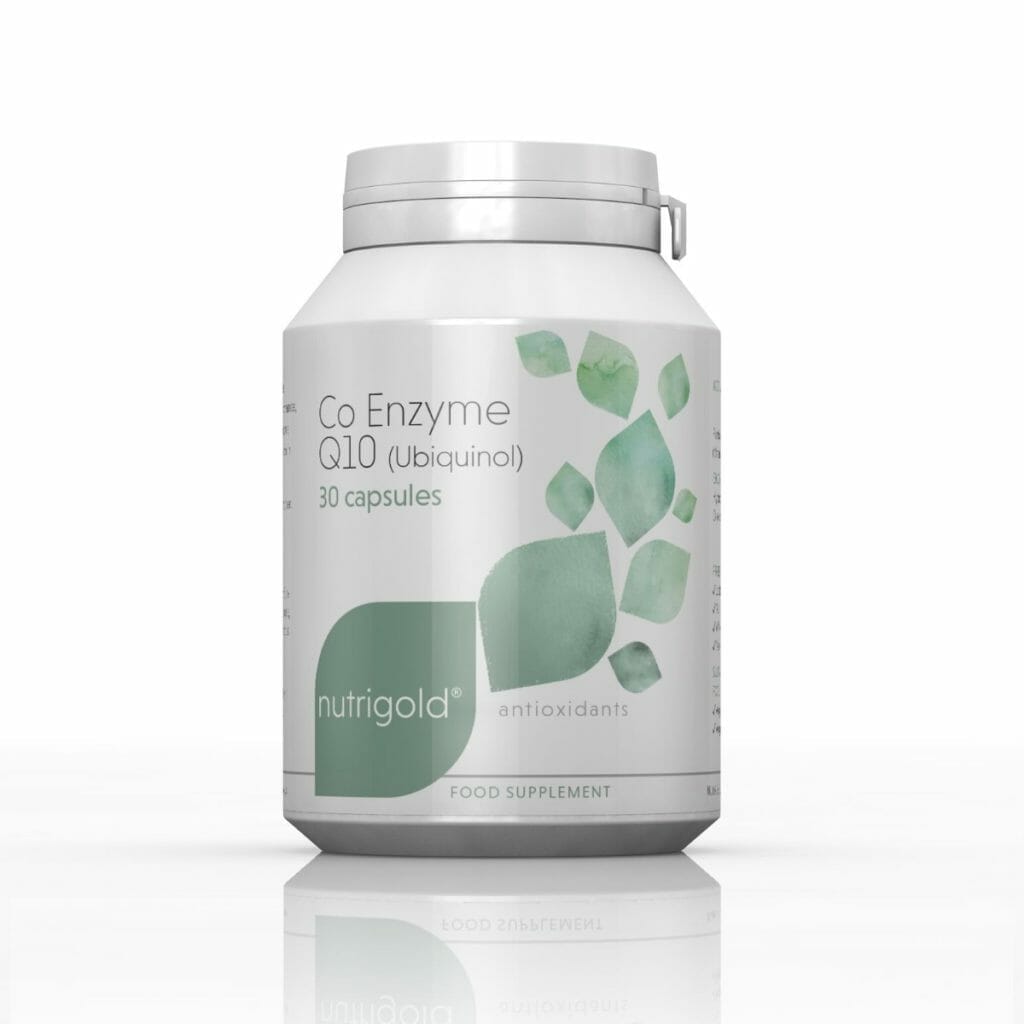
Coenzyme Q10 can be found as ubiquinol and ubiquinone forms in food supplements. Ubiquinol is the “reduced” form of CoQ10, whereas ubiquinone is the “oxidised” form of CoQ10 (the terms oxidised and reduced refer to the loss and gain of negatively charged particles known as electrons, respectively.) Both ubiquinol and ubiquinone play important roles in the human body but the different forms of this fat-soluble coenzyme affect its bioactivity.
So which form of CoQ10 is recommended in supplements? Although CoQ10 is cycled between the ubiquinone and ubiquinol forms it is ubiquinol that is believed to confer health benefits. This is because its reduced state allows it to neutralise free radicals and thereby prevent them from damaging cellular DNA, lipids, and proteins. Therefore CoQ10 supplements that contain ubiquinone must first be metabolised into ubiquinol in the body in order to exert their antioxidant effects. Once again, we use the more bioactive ubiquinol form, such as in our CoEnzyme Q10 product, which research also shows has superior bioavailability. [18]
We also go the extra mile …
We are now proud to say that the entire Nutrigold range is
free from gluten.
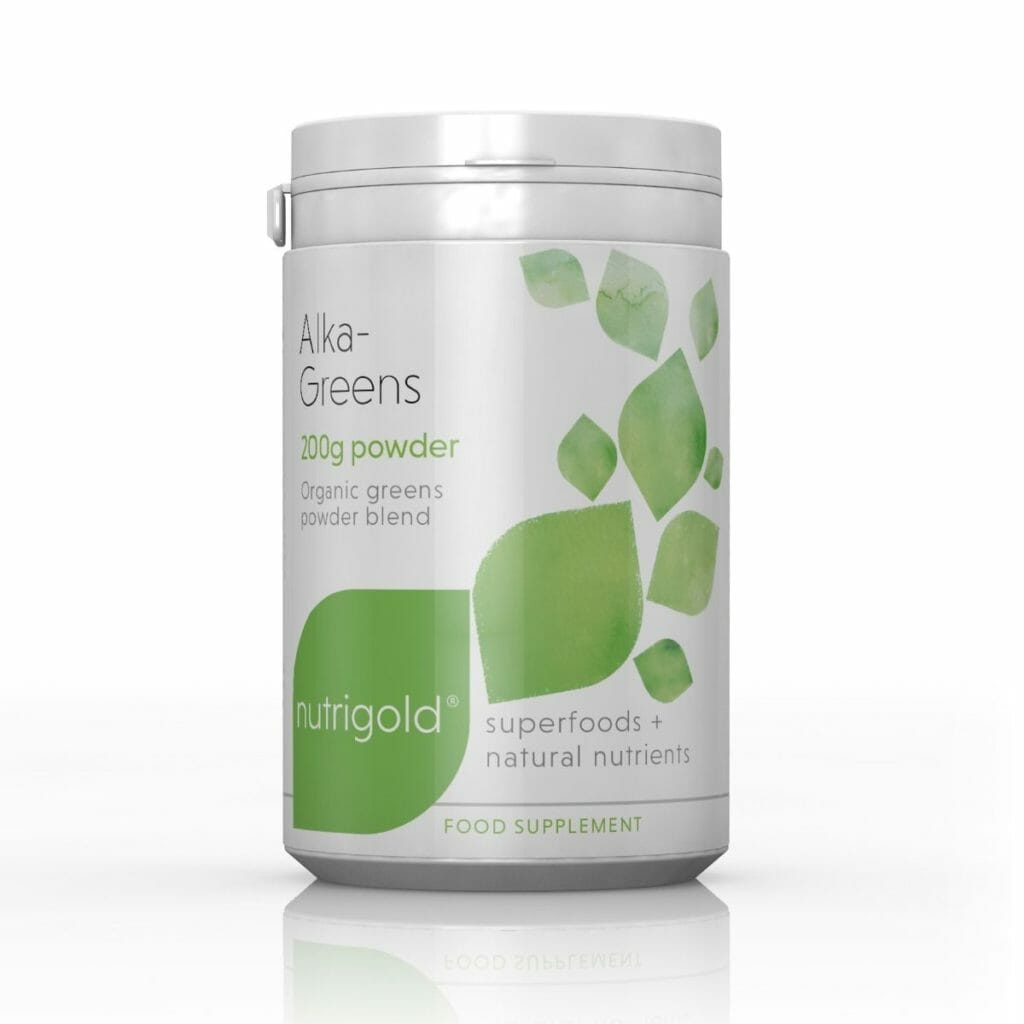
By updating the ever-popular Alka-Greens? product to include organic spinach powder rather than pre-sprouted barley, this product is now gluten free. Organic Spinach powder adds vibrant colour, flavour and a host of nutritional benefits including beta carotene, folate, iron, selenium, fibre and other phytonutrients to this nutritious powder that can be mixed into juices and smoothies for all the family.
Where possible we also use vegan forms of nutrients and are pleased to announce we’ve updated our ever-popular skin health food supplement Renewal to include a vegan source of N-Acetyl Glucosamine (NAG). This product still contains marine collagen but is now free from shellfish ingredients so removes a major allergen source.
Speaking of allergens, we have now also switched to the latest soya free forms of beta carotene and Vitamin E in our supplement range, including Calcium Magnesium Complex.
We think you’ll agree that we’ve been hard at work bringing you the best possible formulations to support your nutrient needs!
Watch this space in 2019 for more exciting product launches and reformulations using only the best in bioavailable and bioactive nutrients.
If you need any further information about our product range then you can contact us on Freephone 0800 233 5675 or email [email protected].
References:
- Hurrell R & Egli I (2010) Iron bioavailability and dietary reference values. American Journal of Clinical Nutrition 91(5):1461S-1467S
- Aggett PJ (2010). Population reference intakes and micronutrient bioavailability: a European perspective. American Journal of Clinical Nutrition 91(suppl):1433S-1437S
- S.J. Fairweather-Tait, S. Southon (2003) Bioavailability of nutrients Encyclopedia of Food Sciences and Nutrition (Second Edition)
- High-level Adherence to a Mediterranean Diet Beneficially Impacts the Gut Microbiota and Associated Metabolome
- Iodine Deficiency: Not Just a Problem in Developing Countries
- Rossouw JE, et al (1978) Vitamin B6 and aspartate aminotransferase activity in chronic liver disease. S Afr Med J 25;53(12):436-8
- https://www.nhs.uk/conditions/pregnancy-and-baby/vitamins-minerals-supplements-pregnant/
- Patanwala I et al. (2014) Folic acid handling by the human gut: implications for food fortification and supplementation. Am J Clin Nutr 100:593
- Scaglione F, Panzavolta G. (2014) Folate, folic acid and 5-methyltetrahydrofolate are not the same thing. Xenobiotica 44:480
- Ulrich CM, Potter JD. (2006) Folate supplementation: too much of a good thing? Cancer Epidemiol Biomarkers Prev 15:189
- Jamil K. (2014) Clinical Implications of MTHFR Gene Polymorphism in Various Diseases. Biol Med 6:e107
- Pietrzik K et al. (2010) Folic acid and L-5-methyltetrahydrofolate: comparison of clinical pharmacokinetics and pharmacodynamics. Clin Pharmacokinet 49:535
- https://www.ncbi.nlm.nih.gov/pubmed/17158229
- Takasaki Y et al (2002) Effectiveness of oral vitamin B12 therapy for pernicious anemia and vitamin B12 deficiency anemia. Rinsho Ketsueki ;43(3):165-9
- Okuda K, (1973) Intestinal absorption and concurrent chemical changes of methylcobalamin. J Lab Clin Med 81(4):557-67
- Walker et al (2003) Mg citrate found more bioavailable than other Mg preparations in a randomised, double blind study. Magnesium Res 16:3
- Lindberg JS (1990) Magnesium bioavailability from magnesium citrate and magnesium oxide. J Am Coll Nutr. 1990 Feb;9(1):48-55
- Failla M et al (2014) Increased bioavailability of ubiquinol compared to that of ubiquinone is due to more efficient micellarization during digestion and greater GSH-dependent uptake and basolateral secretion by Caco-2 cells. J Agric Food Chem. 2014 Jul 23;62(29):7174-82







